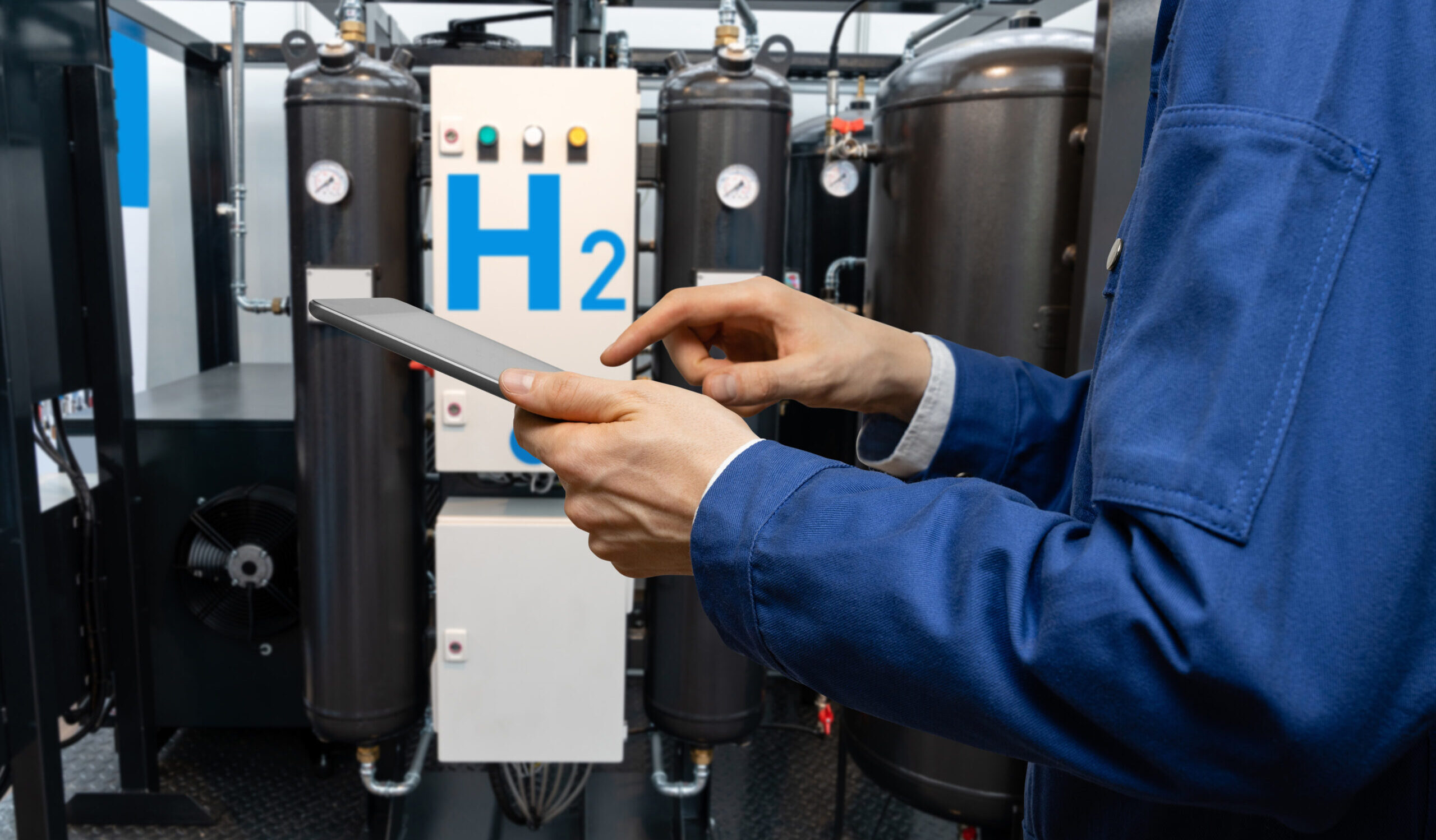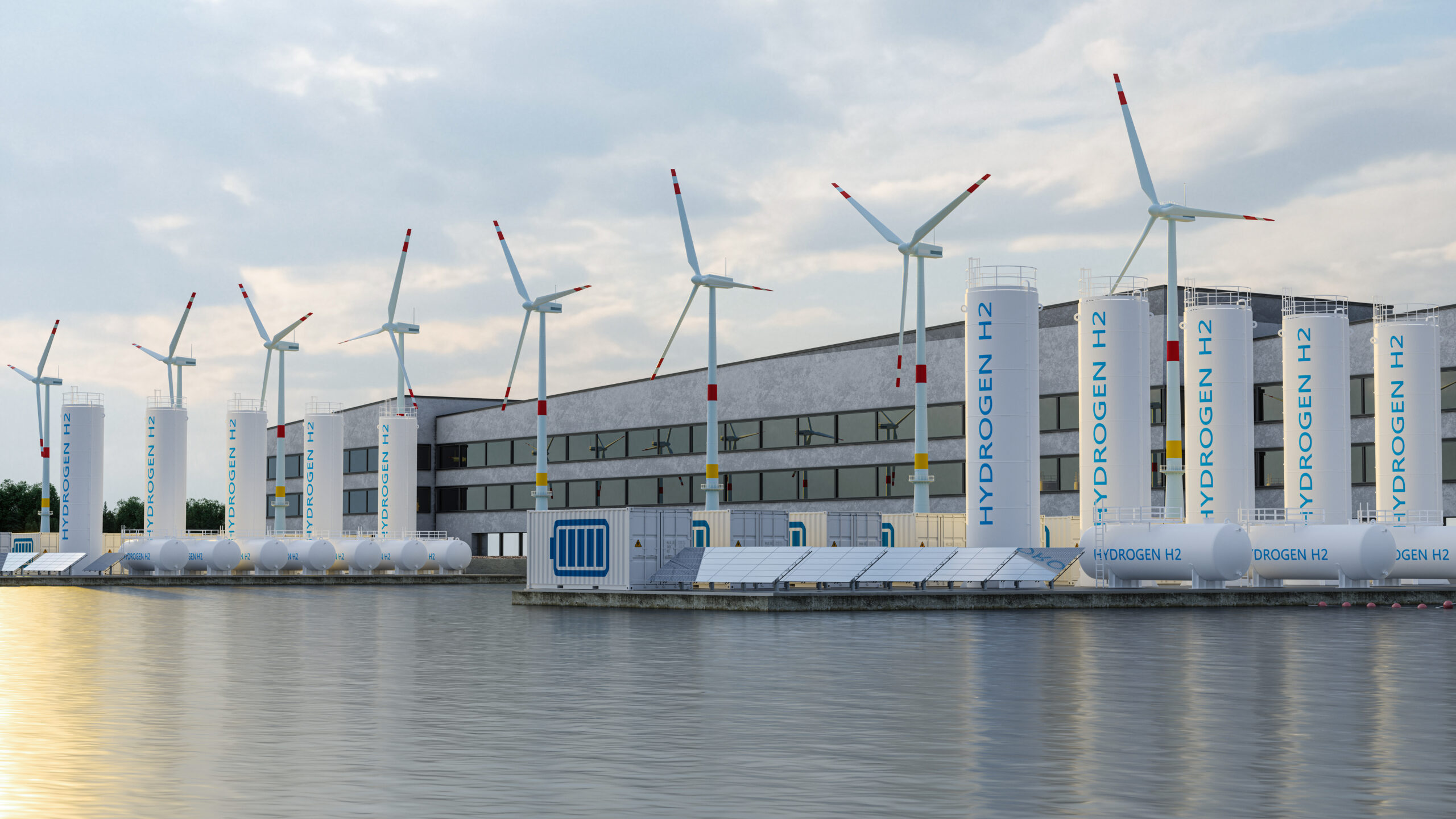In an increasingly interconnected world, the pursuit of clean energy solutions knows no borders. In May 2024, experts from India and the United Kingdom (UK) convened virtually to explore a shared vision: harnessing the potential of clean hydrogen to drive economic growth and combat climate change.
The UK’s Energy Systems Catapult’s Innovating for Transport and Energy Systems (ITES) partnership (which forms part of the India-UK Net Zero virtual centre), hosted this landmark webinar in partnership with Xynteo’s clean hydrogen technology accelerator Energy Leap, to explore the space and build links to promote Indo-UK collaboration in clean hydrogen technology and innovation.
High profile speakers from British High Commission in India, Indian Institute of Technology (IIT), Madras, Council on Energy, Environment and Water (CEEW), The Manchester Metropolitan University, Energy Systems Catapult, and Kirloskar Oil Engines Limited shared their insights at the webinar.
As the virtual meeting room buzzed with ideas, it became clear that the India-UK partnership in clean hydrogen is more than just diplomatic goodwill—it’s a strategic alliance with the potential to reshape the global energy landscape.
Dr. Deepak Yadav (Programme Lead, CEEW) painted a compelling picture of how this collaboration could unfold. “Technology can be UK-based, with manufacturing that can be India-based,” he suggested, outlining a future where British innovation meets Indian production prowess.
But the opportunities don’t stop at large-scale manufacturing. Dr. Aravind Kumar Chandiran (Associate Professor, Department of Chemical Engineering, IIT Madras) pointed out an often-overlooked goldmine: India’s vibrant micro, small and medium enterprise (MSME) sector.
“Seventy per cent of components in the Indian automotive sector are made by the MSME sector for original equipment manufacturers (OEMs),” he noted. “Can we strategically move MSMEs into the hydrogen manufacturing ecosystem?”
This shift could rapidly build a robust, agile supply chain for hydrogen technologies, leveraging India’s existing manufacturing expertise in new and exciting ways. Dr. Chandiran added, “India has a software base that can enable this transition much faster. Can we repurpose their expertise to digital platforms that SMEs require?” The potential here is enormous: imagine smart grids optimising hydrogen production and distribution, or AI-driven systems managing complex hydrogen supply chains.
The foundation for this collaboration is already stronger than many realise. Dr. Patricia Pinto, Ph.D. (Science & Innovation Adviser, UK Science and Innovation Network, British Deputy High Commission) shared an encouraging statistic: UK-India research collaboration surged by 60% between 2019 and 2022. This existing research relationship could be the springboard for groundbreaking hydrogen innovations.
On the policy front, the UK’s experience in establishing the world’s first Low Carbon Hydrogen Standard could prove invaluable as India develops its own regulatory framework. Rahul Sahai (CEO, Kirloskar Oil Engines Limited) emphasized the need for “deliberation on quality and safety standards” between the two countries, highlighting an area ripe for knowledge exchange.
Skills development emerged as another crucial area for collaboration. Amer Gaffar (Director of the Manchester Fuel Cell Innovation Centre, The Manchester Metropolitan University) revealed that they’ve already “supported 150 SMEs in India” in hydrogen-related fields. This expertise could be the basis for comprehensive knowledge transfer programs, helping both countries build the workforce needed for a hydrogen-powered future.
Funding, too, could see interesting cross-pollination. Jack Landers, First Secretary, Science, Climate, Space & People, Deputy Head of Science, Technology and Innovation Network (SIN), British High Commission in India, described initiatives “incentivizing research and small programs between GBP 10-100,000 grants for small companies to get off the ground in the hydrogen market.” Such models could be adapted or expanded for joint India-UK funding schemes, giving a boost to innovators in both countries.
The collaboration is already taking shape in specific sectors. The UK’s work on “living labs in pharmaceutical sectors and decarbonization” offers a template that could be replicated or expanded with Indian partners, potentially leading to breakthrough applications of hydrogen in various industries.
However, Dr. Chandiran offered a word of caution and a call for focus. “We need to come out with a roadmap to foster collaboration,” he urged. “If we can identify five most important components which we want to indigenize… there are some technologies that need to be identified and pushed through government funding.” This targeted approach could help channel resources effectively, accelerating progress in key areas.
As the webinar drew to a close, the speakers reiterated that the India-UK hydrogen partnership isn’t just about two countries working together—it’s about combining complementary strengths to solve one of the world’s most pressing challenges. From the bustling tech hubs of Bengaluru to the wind-swept coasts of Scotland, this collaboration could be the catalyst that turns the hydrogen economy from a promising concept into a world-changing reality.
India’s ambitious hydrogen vision
India has set its sights on becoming a global hub for clean hydrogen production, utilization, and export. The National Green Hydrogen Mission (NGHM), launched in 2023 with a substantial investment of US$ 2.4 billion, underscores the country’s commitment to this goal. India’s strategic advantages are compelling: the world’s fastest- growing large economy, abundant solar resources, a skilled workforce, and a competitive manufacturing base. India aims to position itself at the forefront of the global hydrogen economy, leveraging its unique strengths to drive innovation and scale.
UK’s strategic hydrogen ambitions
While facing different resource dynamics, the UK shares India’s enthusiasm for clean hydrogen. The UK Hydrogen Strategy, initially unveiled in 2021 and updated in 2023, sets an ambitious target of 10 GW of low-carbon hydrogen production by 2030. This vision is backed by significant funding, including a GBP 240 million Net Zero fund for hydrogen projects and a GBP 1 billion Net Zero Innovation Portfolio. The strategy reflects a nuanced understanding of the role hydrogen can play in its energy transition, balancing innovation with practical implementation.
To learn more about Energy Leap, visit us below.
Learn moreThis article first appeared in Hydrogen India, July 2024, Vol I, Issue 3
Stay up to date with our latest interviews by following us on social media (LinkedIn I Twitter), or Contact Us to find out how we can help your leaders and organisation create people and planet-positive impact.



